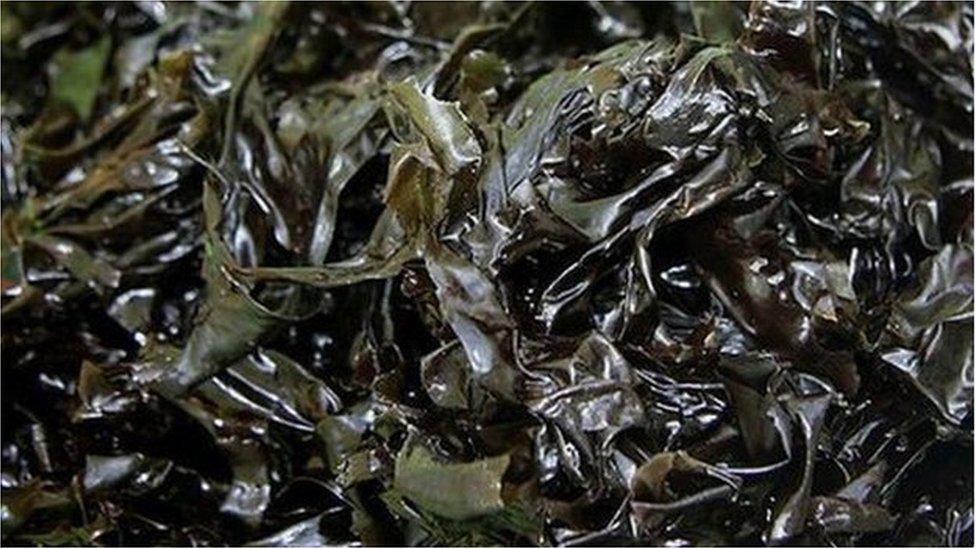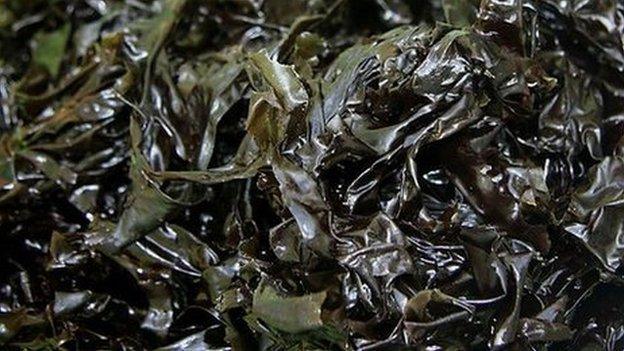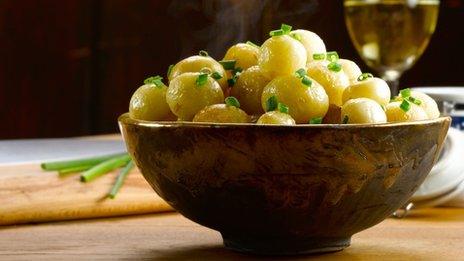Welsh Laverbread awarded EU protected food status
- Published

A traditional Welsh dish has been successful in applying for protected food status.
Welsh Laverbread has been awarded special designation under European law, external, meaning no other producer can use its name.
The dish is made from cooked nori seaweed picked from the Welsh coast.
It joins the likes of Anglesey Sea Salt, Conwy Mussels, Pembrokeshire Early Potatoes and Welsh Lamb which have already been granted the status.
The recognition comes after a four year application process by Selwyn's Seafood, based in Penclawdd in Gower, Swansea.

Laverbread's taste and appearance is affected by the cleanliness and temperature of the sea water, as well as the method of producing it, making it a characteristic of its origin.
Collecting the laver, a type of seaweed, to make Welsh Laverbread was a small cottage industry in Pembrokeshire, dating back to 1800. The laver was thrown over thatched huts to dry before being sold to businesses in Swansea where it was cooked into Welsh Laverbread and sold at local markets.

The status recognises foods which are produced, processed and prepared in a specific region using recognised expertise, such as Champagne and Parma Ham.
There are currently 80 protected names in the UK, made up of food products, wine, beers, ciders, spirits and wool.
In total, 12 Welsh products have now been awarded protected status.
Lesley Griffiths, cabinet secretary for environment and rural affairs, said: "Wales' reputation for high-quality food and drink continues to go from strength to strength."
- Published28 July 2015

- Published15 January 2014

- Published4 December 2013
